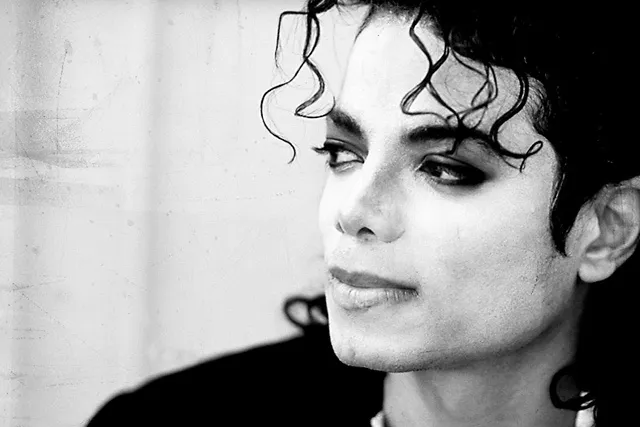
In early 2009, Michael Jackson thought he had found the “miracle cure” for his deteriorating health: a new personal physician named Conrad Murray. He hoped that Conrad Murray would help him regain his energy for the This Is It tour, but Michael Jackson was wrong. He could not have imagined that the combination of the two would bring such a tragic outcome.
Michael Jackson’s final moments on June 25, 2009, and the months leading up to his tragic death, are detailed in 83 Minutes, a new book by Mark Langthorne and Matt Richards.
In 2009, Michael Jackson’s health and finances plummeted, largely due to the music legend’s sexual harassment scandal. In an attempt to regain his position in the music industry, Michael Jackson sought out Murray in April of that year to ask for Propofol, a drug he believed could cure insomnia.
“Dr. Conrad Murray administered approximately 5,900ml of Propofol,” writes 83 Minutes. “By comparison, a typical hospital with nine anesthesiologists working 10 hours a day for a week would use only 5,000ml of Propofol.”
Along with the effects of Demerol – a painkiller prescribed by a dermatologist, Michael Jackson’s physical condition significantly decreased in a short time. The director of the show This is it Kenny Ortega said that the famous singer was getting sicker and weaker. Even during the rehearsal in London, Jackson forgot the lyrics and then cried when talking to his 12-year-old son Prince: “They’re going to kill me”.
:max_bytes(150000):strip_icc():focal(399x0:401x2)/michael-jackson-0000-800-b2b974544909432b9b7ae4e4fb5a27bc.jpg)
On June 24, the King of Pop’s health seemed to improve as he completed a rehearsal. Michael Jackson returned to his Los Angeles mansion around 1 a.m. the next day. There, he was warmly “welcomed” by Conrad Murray in a room that was believed to be a treatment room. According to 83 Minutes, this room was reminiscent of the miserable lifestyle of drug addicts.
In his statement to the police, Murray said that nine hours later, he gave Jackson Valium and the sedatives Lorazepam and Midazolam. At first, Conrad Murray also prevented Michael Jackson from using Propofol continuously for 60 days, however, the Thriller singer continuously begged for the drug.
At 10:40 a.m., 20 minutes after administering 25 mg of Propofol, Murray claimed to have fallen asleep. While he insisted to police that he had left the room and was only using the bathroom, phone records showed that Murray was still in contact with several people and his girlfriend between 11:07 a.m. and 11:51 a.m. And it wasn’t until 12:05 p.m. that people began to realize something was wrong in the house. Murray said he immediately asked Jackson’s assistant Alberto Alvarez to call 911. Alvarez’s testimony, however, was different. Alvarez said Murray checked the room before throwing a bunch of bottles and IV bags into a bag. It wasn’t until 12:21 p.m. that Alvarez called 911.
Before the ambulance arrived, Murray performed CPR on Michael Jackson. Dr. Richard Senneff of the emergency center said that at that time, Michael Jackson looked like a dying patient. At 1:07 p.m. on June 25, Michael Jackson – the world music legend – was declared dead.
Two years later, in 2011, Murray was convicted of manslaughter in connection with Michael Jackson’s death. Murray was released in 2013 after two years in prison.
News
Kyline Alcantara Drags Paolo Contis Into Breakup w/ Mavy?
Kapuso actress Kyline Alcantara is accused by veteran showbiz writer Lolit Solis of dragging actor-host Paolo Contis into her breakup issue with Mavy Legaspi. In 2023, the MavLine breakup was one of the celebrity breakups that caught the online community’s attention. Netizens…
Oh my god, this is crazy! Kobe Paras and Mavy Legaspi fight over Kyline Alcantara!
Rumors have been swirling lately about a potential love triangle between three popular figures in the Filipino entertainment industry: Mavy Legaspi, Kobe Paras, and Kyline Alcantara. While none of the involved parties have publicly addressed these speculations in detail, fans…
Kim Chiu and Barbie Forteza weighed in on the age-old debate of…
Kim Chiu and Barbie Forteza weighed in on the age-old debate of city life versus provincial life. In a recent YouTube vlog uploaded on March 31, 2024, the two Filipino actresses engaged in a candid conversation in a game of “This or That,”…
Barbie Forteza on the Dark Side of Friendship with David Licauco
Naniniwala si Barbie Forteza na marami sa mga manonood ang matatalino kung saan mas matimbang para sa kanila ang kalidad ng isang proyekto kesa personal na buhay ng mga bida. Isang perpektong halimbawa ay ang BarDa loveteam nina Barbie at David Licauco, na…
Sanya Lopez laughs off JakBie breakup rumors: “It’s funny…”
Pinagtatawanan lang ng Kapuso actress na si Sanya Lopez ang hindi mamatay-matay na isyung, diumano, hiwalay na ang nakatatanda niyang kapatid na si Jak Roberto at long-time girlfriend nitong si Barbie Forteza. Makailang beses nang naisyu ang relasyon nina Barbie at Jak o JakBie, lalo…
Barbie Forteza and David Licauco’s sweet memories in South Korea
Malaking bahagi ng pelikulang That Kind Of Love ay ginawa sa Seoul, South Korea, kaya tinanong ang mga lead stars ng pelikula na sina Barbie Forteza at David Licauco tungkol sa hindi nila makakalimutang eksena na kinunan sa naturang bansa. Photo/s: @pmproductionsinc on Instagram Umpisang lahad…
End of content
No more pages to load











